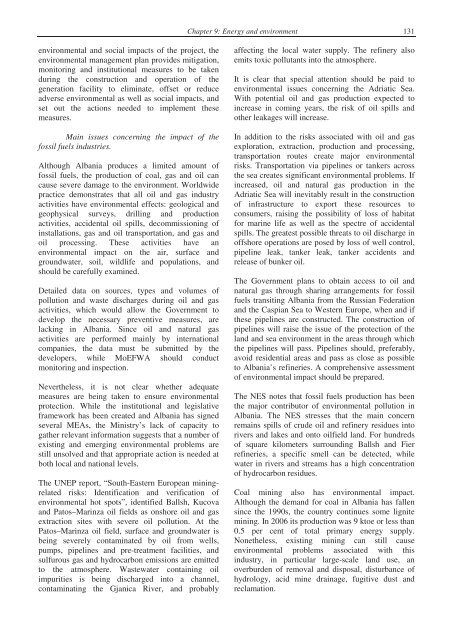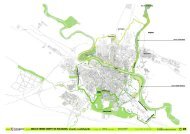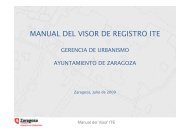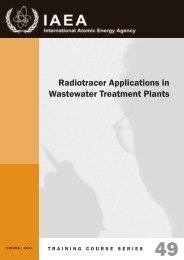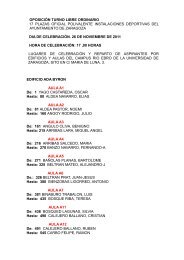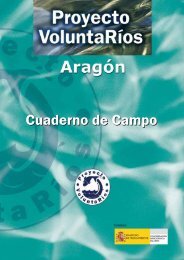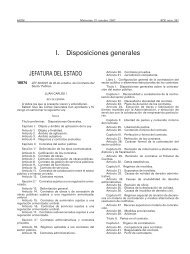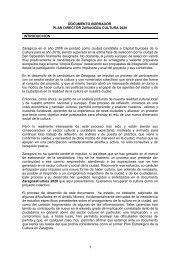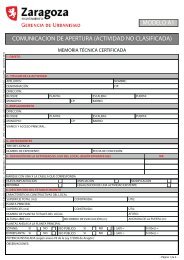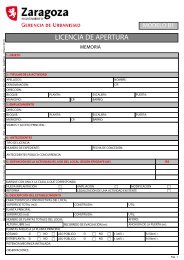Chapter 9: Energy and environment131environmental and social impacts <strong>of</strong> the project, theenvironmental management plan provides mitigation,monitoring and institutional measures to be takenduring the construction and operation <strong>of</strong> thegeneration facility to eliminate, <strong>of</strong>fset or reduceadverse environmental as well as social impacts, andset out the actions needed to implement thesemeasures.Main issues concerning the impact <strong>of</strong> thefossil fuels industries.Although <strong>Albania</strong> produces a limited amount <strong>of</strong>fossil fuels, the production <strong>of</strong> coal, gas and oil cancause severe damage to the environment. Worldwidepractice demonstrates that all oil and gas industryactivities have environmental effects: geological andgeophysical surveys, drilling and productionactivities, accidental oil spills, decommissioning <strong>of</strong>installations, gas and oil transportation, and gas andoil processing. These activities have anenvironmental impact on the air, surface andgroundwater, soil, wildlife and populations, andshould be carefully examined.Detailed data on sources, types and volumes <strong>of</strong>pollution and waste discharges during oil and gasactivities, which would allow the Government todevelop the necessary preventive measures, arelacking in <strong>Albania</strong>. Since oil and natural gasactivities are performed mainly by internationalcompanies, the data must be submitted by thedevelopers, while MoEFWA should conductmonitoring and inspection.Nevertheless, it is not clear whether adequatemeasures are being taken to ensure environmentalprotection. While the institutional and legislativeframework has been created and <strong>Albania</strong> has signedseveral MEAs, the Ministry’s lack <strong>of</strong> capacity togather relevant information suggests that a number <strong>of</strong>existing and emerging environmental problems arestill unsolved and that appropriate action is needed atboth local and national levels.The UNEP report, “South-Eastern European miningrelatedrisks: Identification and verification <strong>of</strong>environmental hot spots”, identified Ballsh, Kucovaand Patos–Marinza oil fields as onshore oil and gasextraction sites with severe oil pollution. At thePatos–Marinza oil field, surface and groundwater isbeing severely contaminated by oil from wells,pumps, pipelines and pre-treatment facilities, andsulfurous gas and hydrocarbon emissions are emittedto the atmosphere. Wastewater containing oilimpurities is being discharged into a channel,contaminating the Gjanica River, and probablyaffecting the local water supply. The refinery alsoemits toxic pollutants into the atmosphere.It is clear that special attention should be paid toenvironmental issues concerning the Adriatic Sea.With potential oil and gas production expected toincrease in coming years, the risk <strong>of</strong> oil spills andother leakages will increase.In addition to the risks associated with oil and gasexploration, extraction, production and processing,transportation routes create major environmentalrisks. Transportation via pipelines or tankers acrossthe sea creates significant environmental problems. Ifincreased, oil and natural gas production in theAdriatic Sea will inevitably result in the construction<strong>of</strong> infrastructure to export these resources toconsumers, raising the possibility <strong>of</strong> loss <strong>of</strong> habitatfor marine life as well as the spectre <strong>of</strong> accidentalspills. The greatest possible threats to oil discharge in<strong>of</strong>fshore operations are posed by loss <strong>of</strong> well control,pipeline leak, tanker leak, tanker accidents andrelease <strong>of</strong> bunker oil.The Government plans to obtain access to oil andnatural gas through sharing arrangements for fossilfuels transiting <strong>Albania</strong> from the Russian Federationand the Caspian Sea to Western Europe, when and ifthese pipelines are constructed. The construction <strong>of</strong>pipelines will raise the issue <strong>of</strong> the protection <strong>of</strong> theland and sea environment in the areas through whichthe pipelines will pass. Pipelines should, preferably,avoid residential areas and pass as close as possibleto <strong>Albania</strong>’s refineries. A comprehensive assessment<strong>of</strong> environmental impact should be prepared.The NES notes that fossil fuels production has beenthe major contributor <strong>of</strong> environmental pollution in<strong>Albania</strong>. The NES stresses that the main concernremains spills <strong>of</strong> crude oil and refinery residues intorivers and lakes and onto oilfield land. For hundreds<strong>of</strong> square kilometers surrounding Ballsh and Fierrefineries, a specific smell can be detected, whilewater in rivers and streams has a high concentration<strong>of</strong> hydrocarbon residues.Coal mining also has environmental impact.Although the demand for coal in <strong>Albania</strong> has fallensince the 1990s, the country continues some lignitemining. In 2006 its production was 9 ktoe or less than0.5 per cent <strong>of</strong> total primary energy supply.Nonetheless, existing mining can still causeenvironmental problems associated with thisindustry, in particular large-scale land use, anoverburden <strong>of</strong> removal and disposal, disturbance <strong>of</strong>hydrology, acid mine drainage, fugitive dust andreclamation.
132 Part III: Integration <strong>of</strong> environmental concerns into economic sectors and promotion <strong>of</strong> sustainable development9.5 Conclusions and recommendationsThe significant available potential <strong>of</strong> hydropower<strong>of</strong>fers good prospects but requires careful planning,particularly regarding the environmental impacts <strong>of</strong>new as well as existing HPPs. There are severaltechnical and natural factors which have causedimpact on the environment. They can vary greatlyfrom project to project. The impact <strong>of</strong> each particularHPP should be carefully examined and shouldidentify which plants, fish and wildlife are affected.Some species may end up doing quite well, othersmay sharply decline or completely disappear andsome will be minimally affected. Currently, there isnot cooperation between hydropower andenvironmental authorities on environmental mattersRecommendation 9.1:The Government should:(a) Assess changes to rivers’ ecosystems(possible changes to fish and wildlifehabitats) as environmental impacts possiblycaused by hydropower plants (HPP);(b) Conduct water quality monitoring in HPPreservoirs;(c) Improve inter-administration cooperationbetween hydropower and environmentalauthorities, particularly on water releaseissues.There is growth in energy companies’ activities,especially in the oil sector. Analysis <strong>of</strong> the structureand scale <strong>of</strong> the environmental impact <strong>of</strong> the fossilfuels sector’s activities is critical. Volumes <strong>of</strong>pollutant inputs into the environment should beexamined by the energy operators and environmentalauthorities. A detailed analysis <strong>of</strong> the sources andcomposition <strong>of</strong> pollution components, and the degree<strong>of</strong> hazard they represent, is a necessary part <strong>of</strong>environmental control. A database <strong>of</strong> pollution levelsin different regions, as well as ranges <strong>of</strong> typicalpollutant levels in surface waters and air, should beprepared and provided for public consideration.Recommendation 9.2:The Ministry <strong>of</strong> Environment, Forests and WaterAdministration should:(a) Strengthen environmental impact assessmentfor energy-related projects;(b) Gradually introduce environmental audit <strong>of</strong>energy-related activities.While the power sector has the greatest prospect <strong>of</strong>operating with less energy loss, there are severalcritical sectors for the implementation <strong>of</strong> energyefficiency measures. For example, buildings andwater heating together represent the second largestenergy use in <strong>Albania</strong>, after road transport. More thanhalf <strong>of</strong> the energy consumption in building heating is<strong>of</strong> electricity, as is 86 per cent <strong>of</strong> water heating. Amajor challenge facing <strong>Albania</strong>’s electricity system isthe need to encourage consumers to switch toalternative sources for heating as well as for cooking.Enhanced energy efficiency will reduce electricityconsumption and hence will mitigate environmentalimpacts.Recommendation 9.3:The Government should:(a) Continue to give priority to energy efficiencywithin energy policy;(b) Improve integration <strong>of</strong> energy efficiency intothe reform <strong>of</strong> the energy sector and in otherpublic policies, including using <strong>of</strong> economicinstruments and tariff policy promotingenergy efficiency;(c) Adopt policies to ensure high energyefficiencystandards for industry,construction and housing sectors as well asfor efficient equipment, appliances andvehicles;(d) Continue to enhance diversification <strong>of</strong> energysources.Total proven reserves <strong>of</strong> fuel wood in <strong>Albania</strong> areconsidered to be approximately 6 Mtoe. There areuncertainties related to the real rate <strong>of</strong> cutting fuelwoods but apparently it is around 250,000-350,000toe/year. Growth <strong>of</strong> firewood consumption will beconstrained due to forestry environmentalmanagement issues. Uncontrolled harvesting <strong>of</strong> fuelwood for domestic use and export is leading todeforestation in parts <strong>of</strong> the country. The use <strong>of</strong>inefficient stoves creates indoor and outdoorpollution and leads to health problems. Biomassenergy will possibly play a noticeable role in<strong>Albania</strong>’s sustainable energy development. It couldinvolve the four main resources: urban wastes,agricultural residues, forest residues and animalwastes. There is also potential for other renewableenergies such as solar water heating, wind energy andsmall-scale hydropower.Recommendation 9.4:Taking into account environmental sustainability, the Government should:(a) Conduct a comprehensive study <strong>of</strong> renewableenergy sources (such as solar, wind,geothermal, biomass waste and residues, andagricultural waste);(b) Develop sound policies to promote theapplication <strong>of</strong> renewable energy.
- Page 1 and 2:
UNITED NATIONS ECONOMIC COMMISSION
- Page 6 and 7:
vPrefaceThe second EPR of Albania b
- Page 8 and 9:
viiLIST OF TEAM MEMBERSMr. Antoine
- Page 10 and 11:
ixMinistry of Agriculture, Food and
- Page 12 and 13:
xiCONTENTSForeword ................
- Page 14 and 15:
8.3 Biological diversity ..........
- Page 16 and 17:
xvPageChapter 8Table 8.1:Table 8.2:
- Page 18 and 19:
xviiPageLIST OF PHOTOSIntroductionP
- Page 20 and 21:
xixLIST OF ABBREVIATIONSAICASCICANP
- Page 22 and 23:
xxiSIGNS AND MEASURES .. not availa
- Page 24 and 25:
xxiiiExecutive summaryThe first Env
- Page 26 and 27:
The entire education system is subj
- Page 28 and 29:
was done by international consultan
- Page 30 and 31:
1Introduction I.1 Physical contextA
- Page 32 and 33:
Introduction3The country has deposi
- Page 34 and 35:
Introduction5Photo I.1: Ruins of Sk
- Page 36:
PART I: POLICYMAKING, PLANNING AND
- Page 39 and 40:
10 Part I: Policymaking, planning a
- Page 41 and 42:
12 Part I: Policymaking, planning a
- Page 43 and 44:
14 Part I: Policymaking, planning a
- Page 45 and 46:
16 Part I: Policymaking, planning a
- Page 47 and 48:
18 Part I: Policymaking, planning a
- Page 49 and 50:
20 Part I: Policymaking, planning a
- Page 51 and 52:
22 Part I: Policymaking, planning a
- Page 53 and 54:
24 Part I: Policymaking, planning a
- Page 55 and 56:
26 Part I: Policymaking, planning a
- Page 57 and 58:
28 Part I: Policymaking, planning a
- Page 59 and 60:
30 Part I: Policymaking, planning a
- Page 61 and 62:
32 Part I: Policymaking, planning a
- Page 63 and 64:
34 Part I: Policymaking, planning a
- Page 65 and 66:
36 Part I: Policymaking, planning a
- Page 67 and 68:
38 Part I: Policymaking, planning a
- Page 69 and 70:
40 Part I: Policymaking, planning a
- Page 71 and 72:
42 Part I: Policymaking, planning a
- Page 73 and 74:
44 Part I: Policymaking, planning a
- Page 75 and 76:
46 Part I: Policymaking, planning a
- Page 77 and 78:
48 Part I: Policymaking, planning a
- Page 79 and 80:
50 Part I: Policymaking, planning a
- Page 81 and 82:
52 Part I: Policymaking, planning a
- Page 83 and 84:
54 Part I: Policymaking, planning a
- Page 85 and 86:
56 Part I: Policymaking, planning a
- Page 87 and 88:
58 Part I: Policymaking, planning a
- Page 89 and 90:
60 Part I: Policymaking, planning a
- Page 91 and 92:
62 Part I: Policymaking, planning a
- Page 93 and 94:
64 Part I: Policymaking, planning a
- Page 96 and 97:
67Chapter 5ECONOMIC INSTRUMENTS AND
- Page 98 and 99:
Chapter 5: Economic instruments and
- Page 100 and 101:
Chapter 5: Economic instruments and
- Page 102 and 103:
Chapter 5: Economic instruments and
- Page 104 and 105:
Chapter 5: Economic instruments and
- Page 106 and 107:
Chapter 5: Economic instruments and
- Page 108:
PART III: INTEGRATION OF ENVIRONMEN
- Page 111 and 112: 82 Part III: Integration of environ
- Page 113 and 114: 84 Part III: Integration of environ
- Page 115 and 116: 86 Part III: Integration of environ
- Page 117 and 118: 88 Part III: Integration of environ
- Page 119 and 120: 90 Part III: Integration of environ
- Page 121 and 122: 92 Part III: Integration of environ
- Page 124 and 125: 95Chapter 7WASTE MANAGEMENT7.1 Intr
- Page 126 and 127: Chapter 7: Waste management97sold f
- Page 128 and 129: Chapter 7: Waste management99SitesC
- Page 130 and 131: Chapter 7: Waste management101Table
- Page 132 and 133: Chapter 7: Waste management103• C
- Page 134 and 135: Chapter 7: Waste management105sever
- Page 136: Chapter 7: Waste management107(b) E
- Page 139 and 140: 110 Part III: Integration of enviro
- Page 141 and 142: 112 Part III: Integration of enviro
- Page 143 and 144: 114 Part III: Integration of enviro
- Page 145 and 146: 116 Part III: Integration of enviro
- Page 147 and 148: 118 Part III: Integration of enviro
- Page 149 and 150: 120 Part III: Integration of enviro
- Page 151 and 152: 122 Part III: Integration of enviro
- Page 153 and 154: 124 Part III: Integration of enviro
- Page 155 and 156: 126 Part III: Integration of enviro
- Page 157 and 158: 128 Part III: Integration of enviro
- Page 159: 130 Part III: Integration of enviro
- Page 164 and 165: 135Chapter 10HUMAN HEALTH AND ENVIR
- Page 166 and 167: Chapter 10: Human health and enviro
- Page 168 and 169: Chapter 10: Human health and enviro
- Page 170 and 171: Chapter 10: Human health and enviro
- Page 172 and 173: Chapter 10: Human health and enviro
- Page 174 and 175: Chapter 10: Human health and enviro
- Page 176 and 177: Chapter 10: Human health and enviro
- Page 178: Chapter 10: Human health and enviro
- Page 182 and 183: 153Annex IIMPLEMENTATION OF THE REC
- Page 184 and 185: The new 2011 Law on Environmental P
- Page 186 and 187: Recommendation 3.2:Albania needs to
- Page 188 and 189: Recommendation 4.2:The Ministry of
- Page 190 and 191: for 2004 was prepared within the St
- Page 192 and 193: 163Chapter 6: WATER MANAGEMENTRecom
- Page 194 and 195: There is no updated water resources
- Page 196 and 197: international consulting and author
- Page 198 and 199: it is limited only to the level of
- Page 200 and 201: taken. In addition, NES2, under MoE
- Page 202 and 203: 173Chapter 12: HUMAN HEALTH AND THE
- Page 204: Recommendation 12.5:(a) The Ministr
- Page 207 and 208: 178Worldwide agreementsYear1979 (BO
- Page 210 and 211:
181Annex IIISELECTED ECONOMIC AND E
- Page 212 and 213:
183Land resources and soil 2002 200
- Page 214:
Education 2002 2003 2004 2005 2006
- Page 217 and 218:
188Law on Local Tax System, No. 963
- Page 220 and 221:
191SourcesIndividual authors1. Bego
- Page 222 and 223:
19336. Albania, Ministry of Environ
- Page 224 and 225:
19568. National Agency of Natural R
- Page 226 and 227:
197101. International POPs Eliminat
- Page 228 and 229:
199UNDP and Ministry of Environment
- Page 230:
201172. National Agency for Environ


